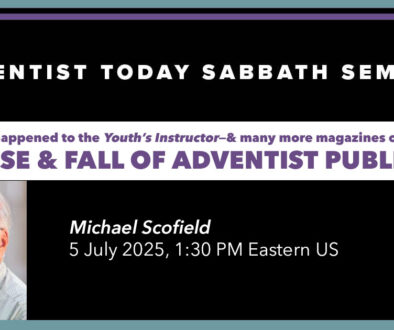A church employee asks: Why are there so many poor administrators?
11 December 2020 |
Dear Aunt Sevvy,
Why does it seem the church hasn’t very good administrators? I’ve seen dozens of highly qualified, competent, hard-working, dedicated church employees mistreated to the point that they transfer, resign, leave church work, leave their profession, or on occasion even leave the church. Others stay because of their commitment to the organization’s ministry, but are stressed and miserable. Why does this not raise concerns at the conference or union level, when this pattern is repeated for years in certain organizations?
Signed,
Frustrated employee
Dear Frustrated:
Aunty wants to come to the defense of church administrators, some of whom are friends of hers, and are truly wonderful people. But she’s having a bit of a struggle, because Aunty admits she’s wondered the same thing you have.
First, please understand—and Aunty thinks this is crucial—where church administrators come from. Most positions, by policy, must be ordained pastors. Adventist clergy are trained in theology and evangelism, not leadership. Yet they are placed in a system where it appears that the ambition of every pastor is to escape church ministry into an office. So they build their career around the expected call to “come up higher”. Once you make it into the coveted office job, the system is set up so that you never need to go back “down” to lowly parish ministry again—even if you’re not a good leader. More often, they get promoted!
Second, they are chosen by processes that don’t reflect their leadership skills, but their popularity. Technically church members in meetings or committees vote for leaders, but the choices come from behind the scenes before it comes before them. As Aunty heard an administrator say once about the new conference president, “He’s not the best, but he’s been around awhile and it’s his turn.”
Third, though the denomination does have leadership training events, by the time the administrators get into these offices, they’re rarely trainable. The pastors who make it into these jobs tend not to be eager learners, consensus builders or sensitive listeners, but ambitious politicians. And if they weren’t when they got there, they tend that way in the silo they work in.
Fourth, people think the church is a democracy, but it operates more often as a loose, uninformed hierarchy. The leader has a lot of authority with little accountability. He faces reelection only every five years or so. It’s very difficult to fire him, short of a moral fall, and he’ll never voluntarily go back to being a pastor. He may have to please the boss above him in certain matters, but he rarely has to answer to anyone for how he treats his employees or runs his departments.
Finally, the job is probably impossible by design. How do you keep an academy alive to which no one wants to send their children? How do you know how much defense a troubled pastor—or a difficult congregation—deserves? How do you defend a good pastor against an angry layperson who gives lots of money? How can you keep everyone on the payroll if there’s insufficient money coming in? How do you balance the demands of the next level up in the denomination against the needs of your field?
Aunty believes part of the problem is not enough frontline workers. But as others have written here in AT, she fears Adventists would rather keep their offices than their congregations.
Thanks for a good question, and Aunty wishes she had better answers.
Aunt Sevvy
 You can write to Aunt Sevvy at DearAuntSevvy@gmail.com. Please keep questions or comments short. What you send us at this address won’t necessarily be, but could be, published—always without real names. Aunt Sevvy writes her own column, and her opinions are not necessarily those of all of Adventist Today’s editors.
You can write to Aunt Sevvy at DearAuntSevvy@gmail.com. Please keep questions or comments short. What you send us at this address won’t necessarily be, but could be, published—always without real names. Aunt Sevvy writes her own column, and her opinions are not necessarily those of all of Adventist Today’s editors.




